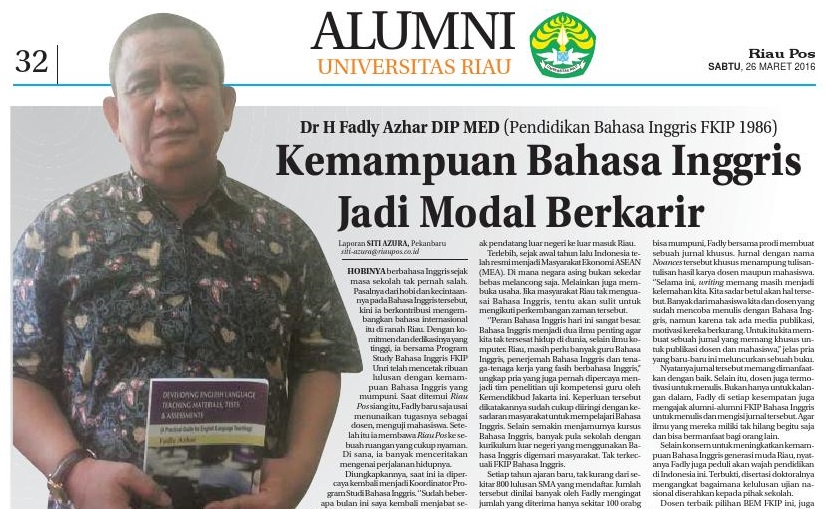TEACHERS’ PROFILES AFTER THE IMPLEMENTATION OF TEACHER CERTIFICATION PROGRAM: AN EVALUATION
Abstract
This research aimed at evaluating the profile of teachers after the implementation of the certification program within the periods of 2006 – 2015. The sample of this research was 367 teachers in Riau Province–Indonesia. Since this research evaluated input, process, and inhibiting factors in conducting pedagogy, professional, and the combination of pedagogy & professional competencies; the Context, Input, Process, and Product (CIPP) evaluation model was used. The research findings revealed that in the input factor, the aspects of knowledge on technology, information & communication (2.8856) and materials, structure, concept, & professional mindset (2.9319) were at a moderate level. Meanwhile, in the process factor, the aspects of reflective action for the improvement of learning quality (2.7036); and use of technology, information, communication dealing with self-improvement (2.8283) were also in moderate level; but in low level for the aspect of creativity in material development In case of inhibiting factors, teachers have problems with copying facilities of learning materials, test, & quiz (65.7%); compulsory teaching load per week (73.0%); activities of classroom and subject teachers working group (67.6%); the utilization of school operation fund (76.3%); the process of promotion (65.4%); appointed to have additional jobs (95.6%); certification fund (50.1%); school library (22.9%); workshop, training, upgrading for teachers (43.6%); and reduction of certification fund (31.6%). However, there was no significant difference in the factors of input and process viewed from the aspects of types of teachers, academic qualification, teaching experience, and gender.
Keywords
Full Text:
PDFDOI: http://dx.doi.org/10.31258/ijebp.v4n1.p64-76
Refbacks
- There are currently no refbacks.
Copyright (c) 2020 International Journal of Educational Best Practices

This work is licensed under a Creative Commons Attribution-NonCommercial 4.0 International License.





